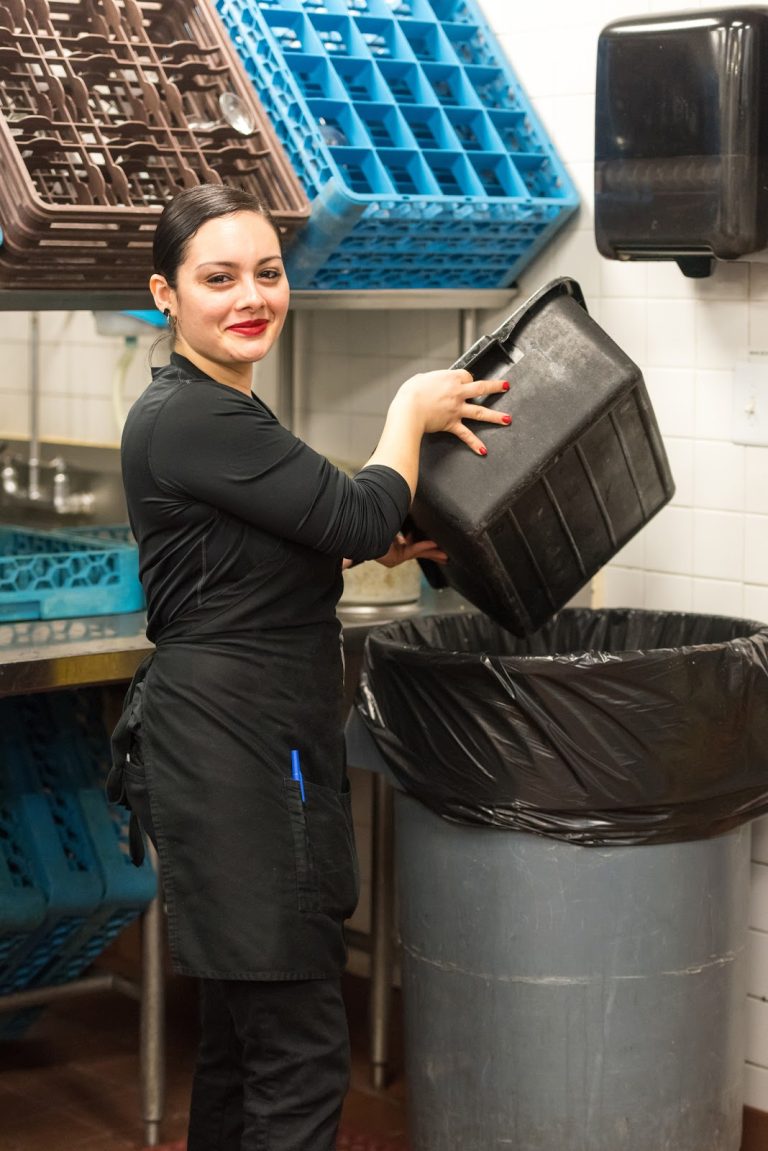Waste accumulation is an ever-growing issue that continues to impact our landfills and the well-being of our environment. Due to the significantly high levels of food, recyclables, and general waste that’s widely created in the hospitality industry, restaurant owners have a unique opportunity to help combat this rising issue through an effective waste management program.
In fact, many restaurants across Canada are jumping on-board with improved sustainable measures in hopes to do their part in directly dealing with this problem. Reducing your waste output through a recycling and waste management program, will not only help our environment, it will cut back on food costs, increase your revenue, and save your business tremendously.
Let’s Review What Restaurant Waste Entails:
Restaurant waste refers to any waste that is generated by either the restaurant or the customer and requires disposal. This waste can further be categorized under three sub-categories: pre-consumer waste, post-consumer waste, and disposables.
Pre-Consumer Food Waste – This is food waste that is caused by problems within the restaurant. For example, food that is spoiled or expired would fall under this category, as it cannot be sold and consumed for obvious health reasons.
Post-Consumer Food Waste – This waste is generated specifically by the consumer and refers to anything leftover on a plate that was never finished and must be thrown away by the restaurant.
Disposables – Restaurant waste refers to more than just food. Take into consideration other material generated on a regular basis, such as packaging, napkins, paper plates, and plastic utensils. These are all common waste that both restaurants and consumers produce.
How Can Your Restaurant Cut Back on Waste?
Create a Food Waste Management Plan for Your Restaurant
Take some time to shift your focus towards your waste output and prevention strategies. Do you have set waste goals in place for your restaurant? Are there areas in which you can minimize food waste or general waste? With clear and achievable goals in place, you can create an action plan that will make things much easier to accomplish. Get your entire team involved and have fun with it! Boost company morale and achieve some serious waste diversion goals!
Have the Proper Waste Streams in Place
It goes without saying that restaurants generate food waste more than any other type of waste, however when you factor in non-food waste, there are plenty of other items that require recycling or disposal. Napkins, plastic cutlery, glass, cardboard and packaging are large culprits as well.
Do you have sufficient recycling bins in place? How about waste bins for non-recyclable material such as greasy pizza boxes, chip bags and plastic straws? While you may assume they are recyclable, the opposite is true and if these items make their way to your recycling bin, all your recyclables may very well be tainted. As a result, you’ll end up sending more waste to the landfill than you would have if they were disposed of properly. Educate your employees with proper signage and provide adequate training on what materials belong in what bin. This will dramatically reduce confusion and ensure that only garbage goes in your waste bins.
Communicate with Your Staff
It’s important to notify your staff on any specific waste management goals you might have. This includes how and where to dispose of recyclables, waste, and compostable material. Ensuring everyone is on the same page is important for overall success and encourages teamwork and feedback. Once staff members understand what is expected of them and the goals at hand, they will be more inclined to do their part in waste reduction, becoming more conscious of their waste disposal habits.
Turn to Front End Waste Services
Georgian Waste works with many restaurants, offering weekly, bi-weekly or monthly service. Bins are available in 4 different sizes and are perfect for garbage and cardboard disposal. Your restaurants will benefit from quick and convenient access to disposal, as each of our bin sizes can fit behind most restaurants. We’d be happy to discuss with you your specific needs and waste management goals. With this helpful insight, together we can create a waste program that meets your budget and the unique needs of your restaurant.
